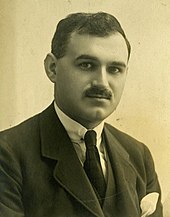
1st Baron Sieff

Israel Moses Sieff, Baron Sieff (4 May 1889 – 14 February 1972) was an English businessman and Zionist who was chairman of the British retailer Marks & Spencer from 1964 to 1967. [1] [2]


Israel Moses Sieff, Baron Sieff (4 May 1889 – 14 February 1972) was an English businessman and Zionist who was chairman of the British retailer Marks & Spencer from 1964 to 1967. [1] [2]
He was born in Manchester, the son of Ephraim Sieff and Sarah Saffer. [1] His father, an immigrant from Lithuania, founded a prosperous textile business in Manchester. He was educated at Manchester Grammar School alongside Simon Marks, son of Marks & Spencer co-founder Michael Marks. For 63 years, he and Marks shared a close friendship that was cemented when each married the other's sister. He earned a degree in commerce at the University of Manchester. [2]
Sieff joined Simon Marks in Marks & Spencer in 1915 while also maintaining an interest in the Sieff family business. In 1926, when Marks & Spencer became a public company, Sieff joined Simon Marks full-time as vice-chairman and joint managing director. In the early 1930s, Sieff went to the United States and spent several weeks in the merchandise development of Sears to gain practical knowledge to improve the company. [2]
When Simon Marks died in December 1964, Sieff became the chairman and joint managing director of the company. On 18 January 1966, he was created a life peer as Baron Sieff, of Brimpton in the Royal County of Berks. [3]
Following Lord Sieff's death, The Times recalled Sieff's approach to business:
It was a remarkable combination of two very different minds and personalities which produced the amazing success of Marks and Spencer. The immense practical genius of Lord Marks balanced the percipient, sensitive fascination with any piece of pioneering which was characteristic of Sieff. He was from the beginning deeply interested in all the social and economic implications of commerce on the scale with which he now found himself involved, and introduced many novelties in the relations of the firm with their customers, their employees, and their suppliers.
In 1918, Sieff was a member of the Zionist Commission which visited Palestine under the leadership of Chaim Weizmann.
Sieff was president of the Political and Economic Planning think-tank from its foundation in 1931 and its chairman until 1939.
In 1910, he married Rebecca Marks OBE . His wife was the President of WIZO for most of her life. They had three sons and a daughter: [1]
The death of their son Daniel, who intended to be a scientist, at age 17 led Sieff — and with the financial support of his business partners and relatives by marriage, the Marks and Sacher families — to endow the 1934 creation, by Chaim Weizmann, of the Daniel Sieff Research Institute in Rehovot in present-day Israel. Renamed the Weizmann Institute of Science in 1949 with the Sieff family's consent, it is Israel's premier research university in the natural sciences. [2]
Sieff was cremated at Golders Green Crematorium and his ashes were placed next to those of Simon Marks.
|

Chaim Azriel Weizmann was a Russian-born Israeli statesman, biochemist, and Zionist leader who served as president of the Zionist Organization and later as the first president of Israel. He was elected on 16 February 1949, and served until his death in 1952. Weizmann was instrumental in obtaining the Balfour Declaration of 1917 and convincing the United States government to recognize the newly formed State of Israel in 1948.
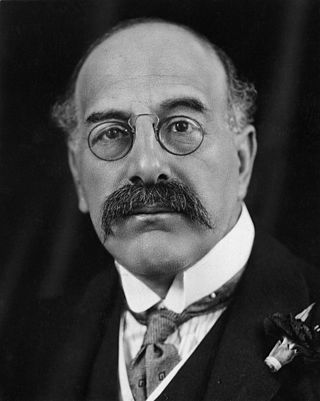
Alfred Moritz Mond, 1st Baron Melchett, PC, FRS, DL, known as Sir Alfred Mond, Bt between 1910 and 1928, was a British industrialist, financier and politician. In his later life he became an active Zionist.

The World Zionist Organization, or WZO, is a non-governmental organization that promotes Zionism. It was founded as the Zionist Organization at the initiative of Theodor Herzl at the First Zionist Congress, which took place in August 1897 in Basel, Switzerland. The goals of the Zionist movement were set out in the Basel Program.
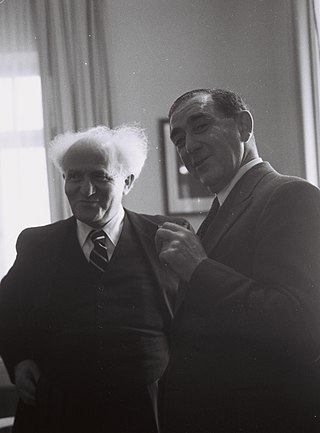
Simon Marks, 1st Baron Marks of Broughton, was an English retail businessman and baron, the son of Michael Marks, the co-founder of major British multinational company Marks & Spencer.

Vera Weizmann, wife of Chaim Weizmann, the first president of the State of Israel, was a medical doctor and a Zionist activist.

Major Victor Albert Francis Charles Spencer, 1st Viscount Churchill, known as the Hon. Victor Albert Spencer until 1886 and as The Lord Churchill between 1886 and 1902, was a British peer and courtier. He was from the Spencer family.
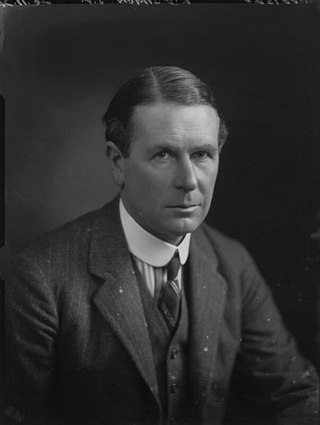
Ernest Emil Darwin Simon, 1st Baron Simon of Wythenshawe was a British industrialist, politician and public servant. Lord Mayor of Manchester in 1921–1922, he was a member of parliament for two terms between 1923 and 1931 before being elevated to the peerage and serving as the Chairman of the BBC Board of Governors.

George Weidenfeld, Baron Weidenfeld, was a British publisher, philanthropist, and newspaper columnist. He was also a lifelong Zionist and renowned as a master networker. He was on good terms with popes, prime ministers and presidents and put his connections to good use for diplomatic and philanthropic ends.

Ernst David Bergmann was an Israeli nuclear scientist and chemist. He is often considered the father of the Israeli nuclear program.

Andrew Zelig Stone, Baron Stone of Blackheath is a non-affiliated member of the House of Lords.
Marcus Joseph Sieff, Baron Sieff of Brimpton OBE was a British businessman and chairman of his family company, the retailer Marks & Spencer, from 1972 to 1982. Like his parents, he was also a leading figure in UK Zionism.
Charles Dreyfus was a French-born British Zionist activist and the President of the Manchester Zionist Society, a member of Manchester City Council and a leading figure in the East Manchester Conservative Association during the time that Arthur Balfour was Member of Parliament for the constituency and Prime Minister.
Joseph Edward Sieff, was an English businessman and Zionist. He was chairman of retailer Marks & Spencer and honorary vice-president of the British Zionist Federation.
Sieff is a surname. Notable people with the surname include:
Harry Sacher was a British businessman, journalist, and Zionist leader. He was appointed director of Marks & Spencer in 1932.

Meyer Wolf Weisgal was an American journalist, publisher, playwright, fundraiser, and Zionist activist who served as the President of the Weizmann Institute of Science and as the founding President of Beit Hatfutsot.
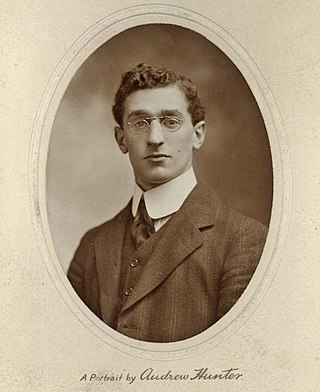
Sir Leon Simon was a leading British Zionist intellectual and civil servant who took part in the drafting of the Balfour Declaration of 1917 and served on the Zionist Commission with Chaim Weizmann. An advocate of cultural Zionism and the revival of Hebrew language, Simon was a scholar and translator of Ahad Ha'am, and produced the first modern Hebrew translations of Plato. He served as the Chairman of the Hebrew University of Jerusalem’s Executive Council, and from 1949–50 as the university's President.
The Honourable Sir David Daniel Sieff was a British businessman who was a director of retailers Marks & Spencer from 1972 to 1997.

The Wolfson family is a British Jewish family known for its business, philanthropic, and political activities. The family owes its initial fame to Sir Isaac Wolfson, who built the Great Universal Stores retail empire and created the Wolfson Foundation.

Rebecca Dora Sieff born Rebecca Doro Marks was a British Zionist who was one of the founders of the Women's International Zionist Organization.